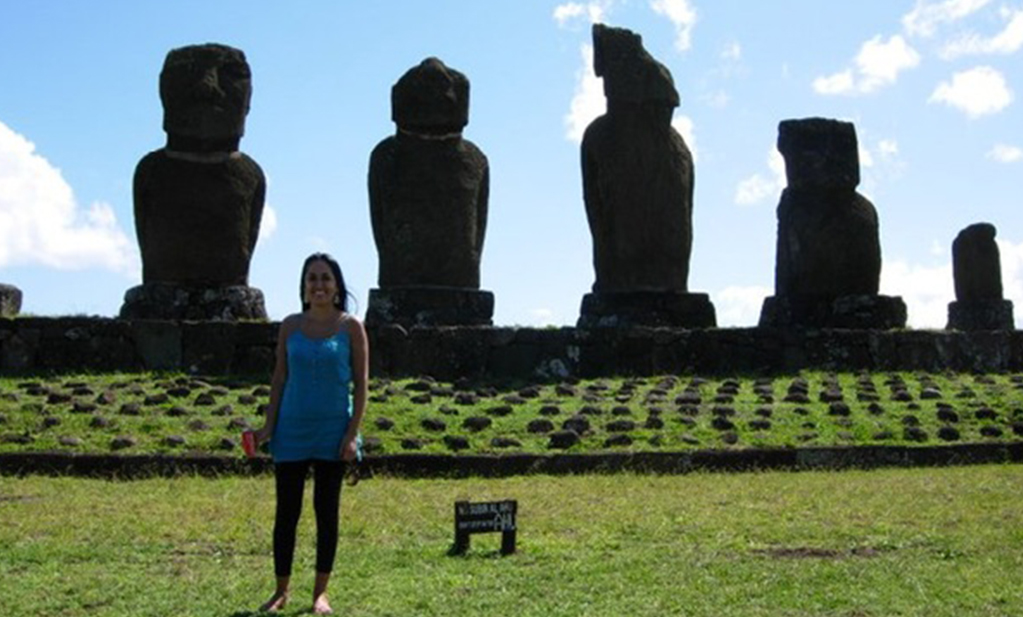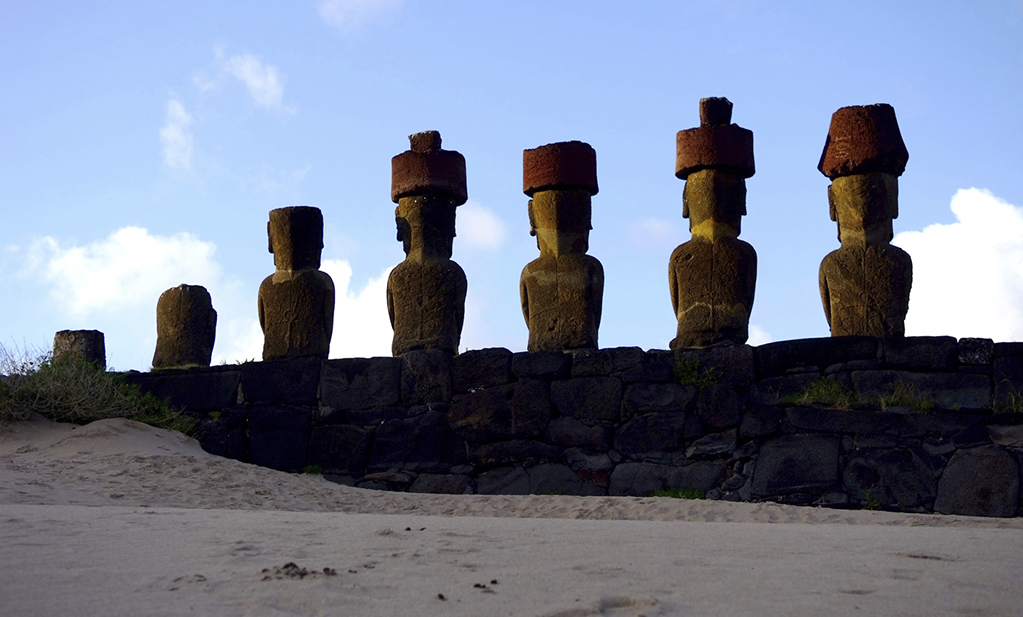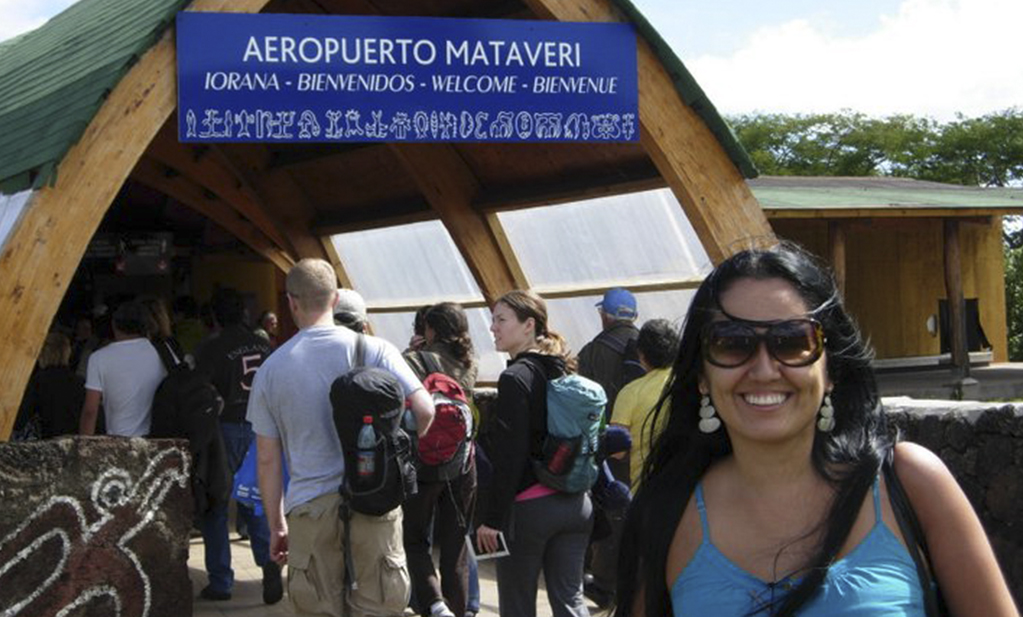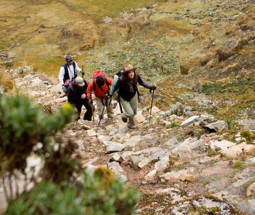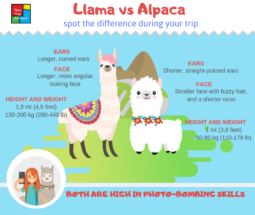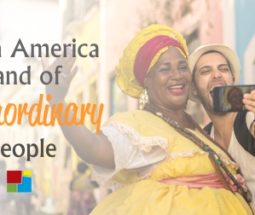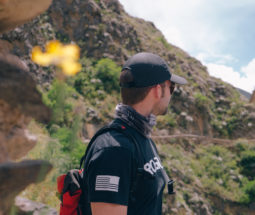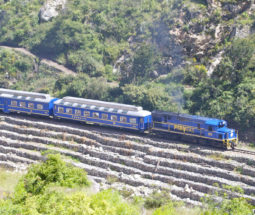Easter Island, Chile (Rapa Nui) was always on my list of the must see places around the world. The mysteries of Rapa Nui like how did people get there and how did they make the moais always intrigued me. A few months ago I finally had the luck to visit it for 5 days!
This island is the most isolated inhabited place in the world located at the southeastern Pacific Ocean, at the south easternmost point of the Polynesian Triangle.
I booked a direct flight from Lima to Easter Island but LAN Airlines that has the monopoly of that route, changed it for a Lima-Santiago-Easter Island, that means, 5 more hours on the airplane plus an hour at Santiago’s airport. I didn’t care because I was so excited to go to that amazing island.
I arrived in Easter Island, Mataveri Airport, around midday with an airplane full of tourists as excited as I was. My guide received me and my boyfriend with a natural flowers necklace and took us to hour hotel that was located in, Hanga Roa town at 8 minutes from the airport and facing the ocean.
We spent the rest of the day just relaxing and wondering around the island that has around Sixty-three square miles in size and with three extinct volcanoes (the tallest rising to 1674 feet). Once we get into the center of the island we caught our first glimpse of a giant Moai. A Moai is a stone statue carved from rock on the Chilean Polynesian between the years 1250 and 1500.
During the following days we visited all the attractions that are a must of Island and learn about the Rapa Nui Culture.
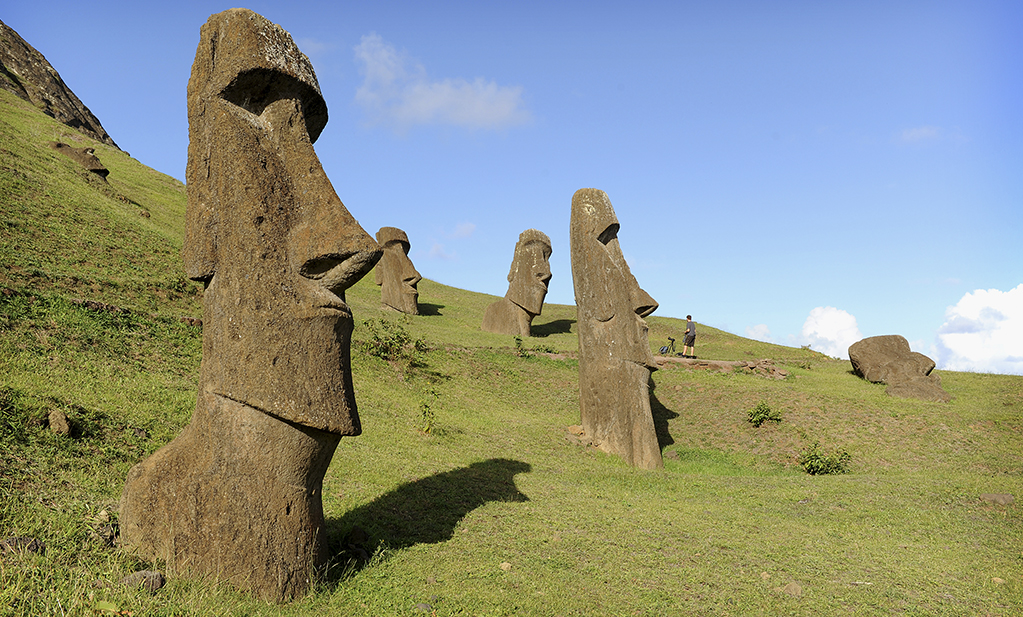
We started with a visit to Ahu Tahai, a temple restored in the late 60s by North American archaeologist William Mulloy. This 7th-century ceremonial compound, which is the oldest on the island, is made up of three different AHUS: Ahu Ko Te Riku, a large (weighing some 20 tons) solitary moai, complete with topknot, circa 690 A.D.; Ahu Vai Uri, a cluster of five moais; and Ahu Tahai, another single moai, this one without a topnot, in the center.
Our adventure continues with a stop in Ahu Akivi, seven spectacular moais, the only ones that face the sea that date back to 1460 A.D., and finishes at Puna a Pau hill, a red stone quarry that was most likely the source for the moais’ topknots and ornamental hairpieces.
I think the visit to Ahu Tongariki, the most important ceremonial site of Easter Island, with 15 figures, is the one that every tourist anxiously expects. The landscape is breathtaking and in the morning you could see turquoise water behind the moais.

After visiting these unique archeological sites, a half or complete day at Anakena Beach is perfect! White sand, turquoise water, palm trees waving in the breeze and twomoais center are part of the amazing landscape of this typical Pacific Island. You can swim, sunbath or just relax.
We also visited visit the Moai quarr, the volcano of Rano Raraku where hundreds of moai may be seen in various states of completion. The largest moai ever carved is here, at 71 feet in height. The outer slopes of Rano Raraku are also home to Tukuturi, the kneeling moai.
Finally, in our last afternoon, we went to Orongo Ceremonial Center, a sacred place where the most important ceremony of the secondary period of the island took place. This was the election of the Tangata Manu (birdman), king of the year.
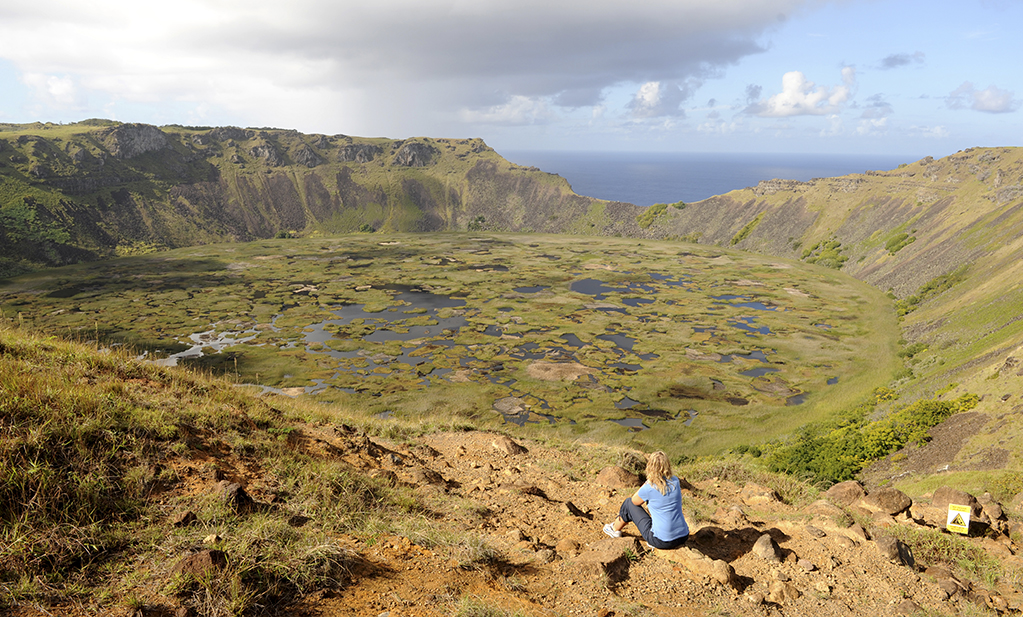
After tours or if there’s a free day, I recommend to stroll the streets of town, visit the artisan’s market, go diving, take surf lessons, go biking, return to the museum, or just shared with the Rapa Nui people who are pretty friendly.
Regardless of your age, you can enjoy a unique travel experience on the tiny land of the moai monoliths and spend some days far away from the continent in the South Pacific.
If you are looking to visit Peru, Bolivia, Chile, Ecuador or Argentina, feel free to contact us! We will be happy to help you with your travel plans.

